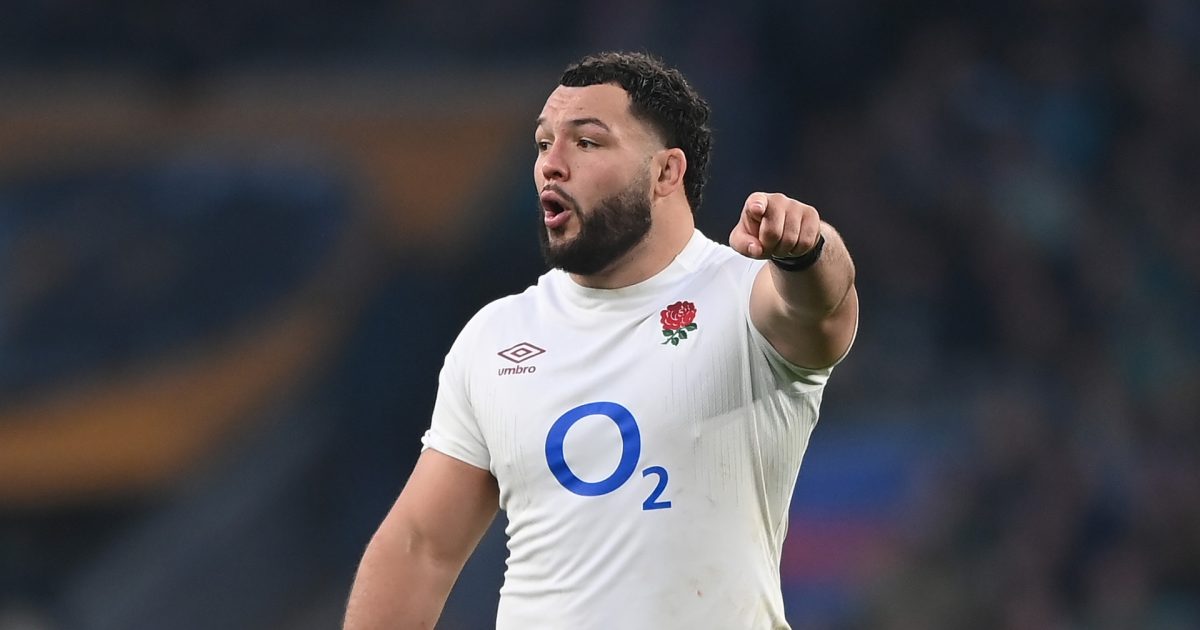Ellis Genge criticises class divide, talent ID system in English rugby

England prop Ellis Genge has revisited his country’s alleged rugby class divide, insisting that potential talent in deprived areas still don’t get the same opportunities to succeed in the sport due to a lack of finances. He also queried rugby’s talent identification, taking issue that it could miss out on a player such as Alex Dombrandt who only signed his professional contract at the age of 22.
Genge, who finished the recent Guinness Six Nations bang in form for Steve Borthwick’s England team, has appeared on this week’s Up Front with Simon Jordan, the William Hill podcast.
It was June 2019, in an interview with RugbyPass, when Genge bemoaned how rugby has got a class problem and that the infrastructure wasn’t there towards the lower end of the game to nurture younger talents who don’t have the same opportunities as those who go to private schools with access to the better facilities and coaches.
He has now reiterated these criticisms on Jordan’s podcast, suggesting: “Rugby union has definitely got a class problem. I have seen it first hand over the years from when I started going to trials.
“At a younger age, which kids miss out on becoming a professional rugby player is massively dependent on the class divide in the sport – and I’m strictly talking a financial divide here.
“If you are a nice enough bloke and you don’t cause any problems, you are going to get a chance. When talking about all the kit you need to buy, the hours you need to drive to go to all the schools and rugby festivals, ultimately, the private schools have the best facilities and the best coaches, they are going to produce better talent – and I get that.
“But, athletically and in terms of raw talent, I know where that is. The kids with raw talent and aggression are hungry to get out of where they are from, I know where that is and that is in those deprived areas. That’s what it all whittles down to – money.”
Genge, who hails from the Knowle West area of Bristol, managed to make it as a professional by joining his local team and switching to Leicester. He has since returned to play for his hometown Bears and remains outspoken about how potential players from rougher areas of England get treated differently.
“The sport has been quite openly on its a*** for a while now, especially in the financial department so if they haven’t got the money to build on the infrastructure and the resources at the bottom of the game, then it will be a challenge to overcome the divide.
“I don’t think we need to make a big song and dance about under-representation within the sport. I just think there should be equal opportunity at both ends of the spectrum, whether you have got a load of money to start with or f*** all, let’s look at both sides of the coin.
“It’s not about gearing everything towards these private schools to find the talent, it should be about going to the deprived areas as well and try and find talent there. That’s where you find the diamonds in the rough.”
Genge went on in his interview to compare the difference between rugby and football when it came to talent ID, referencing now some rugby players have to do it the hard way and only end up getting scouted in their early 20s having been to university.
“When I was growing up I felt it first hand. I don’t know if it’s like that anymore and I think the dynamic has changed as people have recognised it more. In football, for example, you see kids getting signed up at eight, nine and 10 years old because the talent and the infrastructure is grassroots and they know if there’s a good player.
“In rugby however, and I use Alex Dombrandt as an example, he signed his first professional contract when he finished university at 22 and he is one of the best number eights in the Premiership now. The pathways between the two sports are very different, the talent identification isn’t there in rugby.
“I don’t think the biggest talents in football had to go to university and get scouted there and do it the hard way. The infrastructure in rugby at the bottom of the game needs a lot of work and funding to do so.”












































































It used to be like that in South Africa especially when coming to cricket and rugby. Things have changed now as some of the well off private and government schools now adopt ( lack of better word) disadvantage schools. Potential players from disadvantage school somehow have access to training facilities and coaches of well equipped school. Some schools even go to a point of donating or buying facilities for disadvantage schools. Hence we have the likes of Mapimpi and Libbok et Al for example coming from a very poor background but managed to get their way to the Springboks.